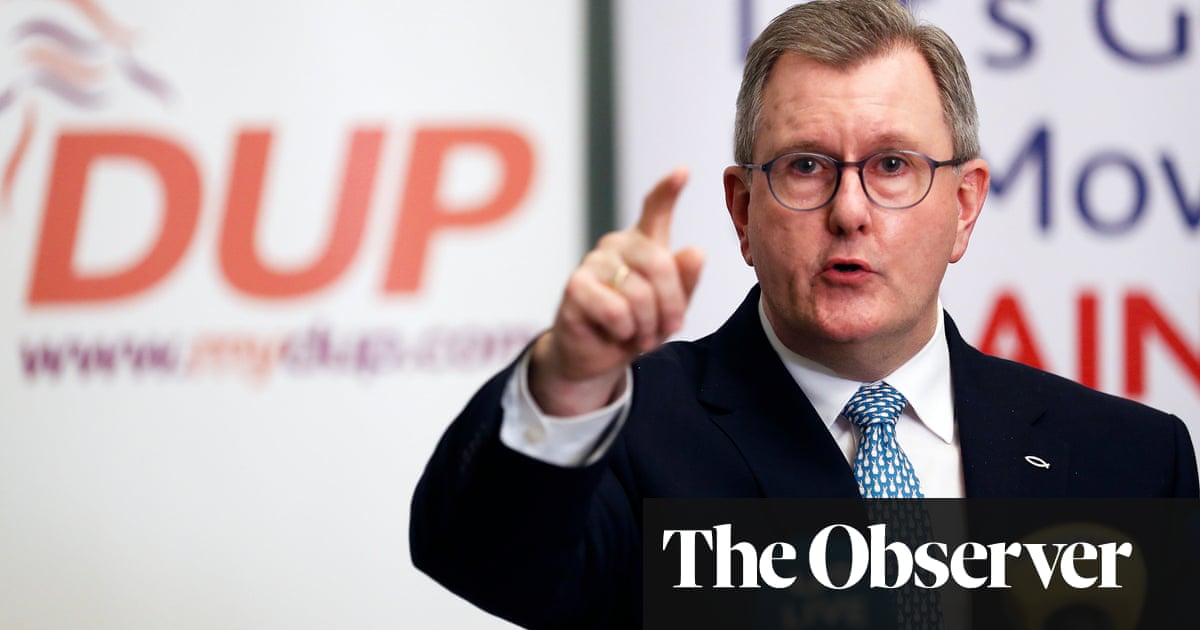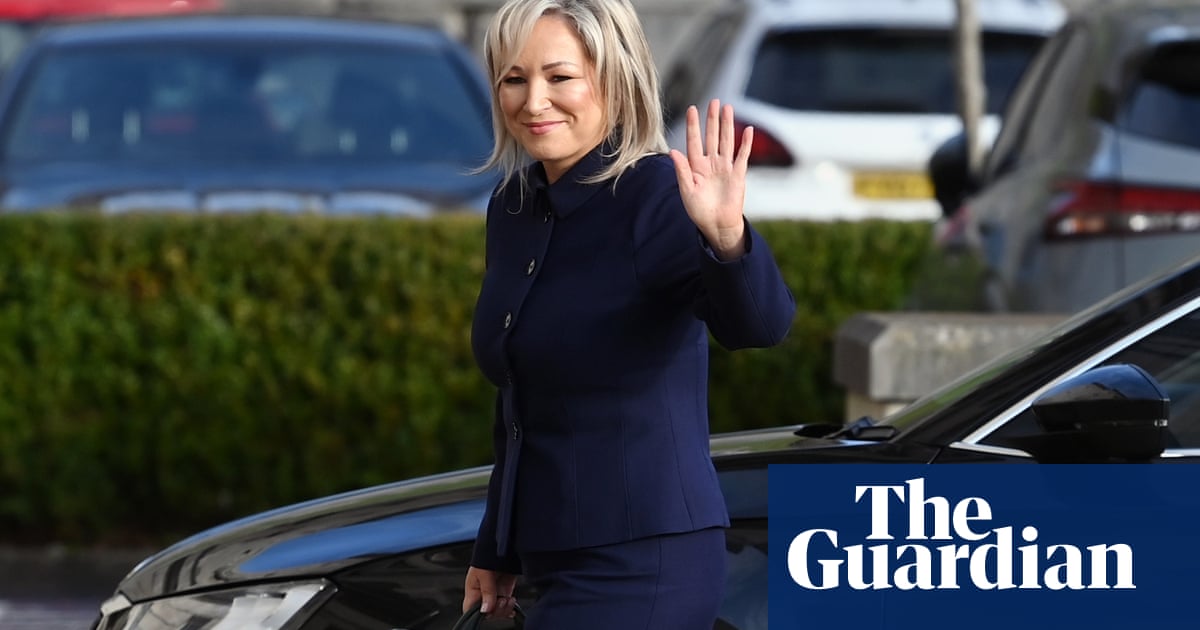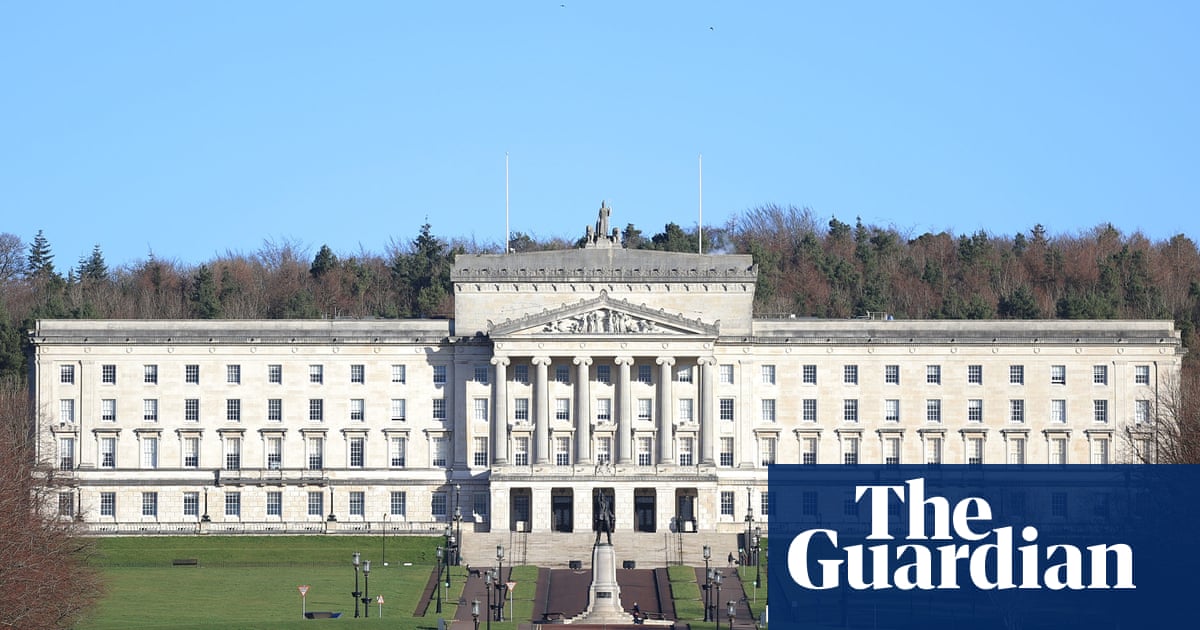
Ireland’s prime minister has said the system of sharing power between unionists and nationalists in Northern Ireland is no longer fit for purpose and should be reviewed.
Micheál Martin’s remarks come amid claims the Foreign, Commonwealth and Development Office (FCDO) wants to delay a new Stormont assembly election as long as possible to give talks over the disputed Brexit protocol a chance to take off.
The system, which imposes a mandatory coalition of representation from the two communities, was devised 24 years ago as part of the Good Friday agreement under which paramilitaries on both sides swapped the bullet for the ballot box.
Recently, there have been complaints that it is out of step with the evolution of regional politics and does not give equal power to all parties.
On Monday, the taoiseach said after more than two decades it may no longer reflect the needs of the community, as other parties – including the neutral Alliance party, now the third biggest in the country – have gained ground.
“There’s a reason why all this [power sharing] came in, in the early years,” Martin said in an interview with the Financial Times. “There is room for the parties to look at changing the system. The system does polarise and it is not fit for purpose … The electoral system should not be one that constantly reinforces polarisation.”
The 1998 peace deal established a power-sharing system based on a consociational model of democracy designed by the political scientist Arend Lijphart for societies emerging from conflict. Under the rules, key decisions must have the backing of unionist and nationalist parties, with no explicit support required from an emerging third party.
The Alliance leader, Naomi Long, said earlier this year that the party’s emergence as one of the largest in Northern Ireland had raised questions over power-sharing structures.
Stephen Farry, the deputy leader of the Alliance party, welcomed the taoiseach’s remarks, tweeting that there should be an option for a “cross-community coalition for the willing”.
Martin’s remarks come as Northern Ireland faces another hiatus in the power-sharing system owing to a boycott by the Democratic Unionist party (DUP) in a row over the Northern Ireland protocol.
After the DUP failed to agree to return to the assembly’s executive by a deadline of last Friday, the Northern Ireland secretary, Chris Heaton-Harris, announced there would be fresh elections. But he declined to name a date, fuelling speculation Rishi Sunak could yet sanction emergency legislation to delay an election.
On Monday, the prime minister’s official spokesperson indicated there may not be any update this week. “I’m not aware of any plans for that [an update] during those visits. The rules are the date needs to be announced as soon as reasonably practicable. But I don’t have an update for you.”
It is understood that the Northern Ireland Office is pushing for as early an election as possible but others in London think that a later election, possibly in January, could give talks over the protocol a better chance.
None of the political parties support an election, fearing campaigning will do little to change the deadlock since the previous poll in May and will further polarise communities at a time of a national cost of living crisis.
Heaton-Harris will be in Belfast on Tuesday to hold talks with Stormont party leaders and will meet the Irish foreign affairs minister, Simon Coveney, later in the week.
One source said the FCDO, which is leading on the talks with the EU over the protocol, was keen to delay the election as long as possible. Given the results could be similar to those in May, they say it would be unhelpful to have all sides dig in, further politicising the talks.












